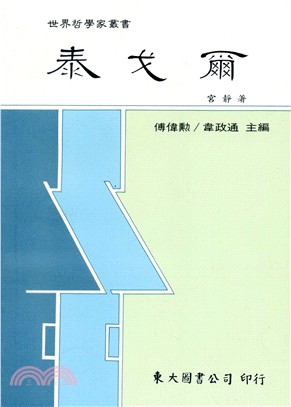I'LL TAKE LEARNING FOR 500: USING GAME SHOWS TO ENGAGE, MOTIVATE, AND TRAIN (W/CD)
商品資訊
相關商品
商品簡介
作者簡介
目次
商品簡介
I’ll Take Learning for 500 shows you how to leverage the excitement and entertainment inherent in game shows by using them to increase participant involvement as well as information retention and comprehension. This book will help trainers and teachers to select, create, modify, and employ game shows as a powerful, effective learning tool. The authors illustrate all of the many different elements that are required to make an effective game show—from writing effective questions to changing pre-existing game show rules, hosting, and creating new games. They offer expert advice on selecting the best game to fit the purpose of the training, tailoring and customizing it for a specific situation, and effectively presenting it to create a dynamic and exciting learning experience. The CD that accompanies the book includes several valuable game show templates that trainers can immediately pick up and use as a hands-on resource.
作者簡介
Dan Yaman has been creating, hosting, and playing training game shows for over twenty years. He has been asked to speak at national conferences, trade shows, and private training sessions about the benefits and techniques involved with playing game shows in the training space. He is cofounder and president of a ten-year-old game show software company, LearningWare (www.learningware.com) based in Minneapolis, Minnesota.
Missy Covington has been writing in all facets for ten years; she holds dual degrees in English literature and psychology from the University of Minnesota. She is an experienced game show creator and has created custom game shows for trade shows, presentations, and national corporate events.
Missy Covington has been writing in all facets for ten years; she holds dual degrees in English literature and psychology from the University of Minnesota. She is an experienced game show creator and has created custom game shows for trade shows, presentations, and national corporate events.
目次
CD Content.
Foreword by Sivasailam "Thiagi" Thiagarajan.
Introduction: Why We Wrote This Book.
A Tale of Two Classrooms.
First Things First . . . .
Part One: Game Shows and Learning.
1. Classroom vs. Hollywood: How Training Game Shows Differ from TV Game Shows.
Education vs. Entertainment.
Teams vs. Contestants.
Trainer vs. Quizmaster.
Encouragement vs. Embarrassment.
Function vs. Flair.
Your Rules vs. TV Rules.
Your Way vs. Their Way.
2. Why Use a Game Show?
Game Shows Review Without Calling It a Review.
Games Shows Are Great for Test Preparation.
Game Shows Are a Strong Preview Mechanism.
Game Shows Can Make Participants Aware of Their Own Strengths and Weaknesses.
Game Shows Energize the Class and Generate Positive Emotions.
Game Show Competition Motivates the Trainee.
Game Shows Provide Feedback for the Trainer and Trainee.
Game Shows Promote Teamwork.
Game Shows Can Help Clarify Material.
Game Shows Are Ideal for Addressing All Kinds of Issues.
Game Shows Cover Multiple Learning Styles.
Game Shows Bridge Generation Gaps.
Game Shows Are a Change of Pace and Energizer for the Trainer.
Game Shows Redefine the Perception of Training.
Game Shows Increase Retention.
3. Myths, Misconceptions, and Frequently Asked Questions.
Myth 1: A Game Show Wouldn’t Appeal to My Trainees . . . They’re Too Shy, Too Professional, Too Blue Collar, Too Serious.
Myth 2: They Won’t Work for My Subject . . . It’s Too Technical or Too Sensitive to Have Fun.
Myth 3: They’re Too Difficult to Create and Take Too Much Time to Construct . . . I Don’t Have That Kind of Time to Spend Every Week.
Myth 4: I Don’t Have Time in My Training Session for a Game . . . I Have Too Much Material to Cover.
Myth 5: Game Shows Don’t Fit the Company Culture . . . We Just Don’t DO That Kind of Thing Here.
Frequently Asked Questions.
Part Two: Designing a Game Show for Learning.
4. Catalogue of Game Shows.
Jeopardy!
Family Feud.
Tic-Tac-Dough.
Beat the Clock.
Wheel of Fortune.
Concentration.
Who Wants to Be a Millionaire?
College Bowl.
5. Selecting the Right Game for Your Purpose.
Game Shows for Content Review.
Game Shows to Gauge Comprehension.
Game Shows to Practice and Apply Skills.
Game Shows to Energize the Classroom.
Game Shows to Preview Content.
Game Shows to Introduce Sensitive Topics.
Game Shows to Break the Ice.
Game Shows to Brainstorm.
Game Shows That Fit Your Purpose.
6. Customizing Your Game Show.
Ringing In.
Timers.
How Long Should a Game Show Be?
Playing a Multiple Match Game.
Scoring.
Penalties.
7. Customizations for Your Specific Game Show.
Universal Game Show Modifications.
Tailoring Your TV Game Show.
8. Teams, Titles, and Trinkets.
The Title.
Contestants and Teams.
Judging.
Prizes.
Part Three: Writing Effective Questions.
9. Question Types and Tips.
Multiple Choice.
Matching.
Multiple Answer.
Sequencing.
Open-Ended.
Essay and Role Play.
True-False.
10. Effective Question Writing.
Make Sure the Questions Are Relevant.
Be Clear.
Be Specific.
Be Direct.
Have Only One Correct Answer.
Don’t Give Anything Away.
Avoid Complex Sentences.
Be Accurate.
Effective Questions Checklist.
11. Questions to Fit Your Purpose.
Questions to Preview a Topic.
Questions to Review a Topic.
Questions to Generate Brainstorming.
Questions to Energize a Training Session.
Questions That Work as Icebreakers.
Questions for Role Playing and Practice.
12. Using Multimedia in Your Questions.
Why Use Multimedia in Your Questions.
Putting Multimedia into Action.
Examples of Multimedia in a Game Show.
Part Four: Conducting a Game Show.
13. The Ultimate Game Show Host.
Be Thorough When Introducing the Game.
Work with the Teams and Contestants.
Offer Words of Encouragement.
Periodically Recap the Scores.
Be Very Familiar with the Questions and Answers.
Keep the Audience Involved.
Maintain Control of the Room.
Rehearsal.
Playing to Your Strengths.
14. Maximizing Learning in the Game Show.
Elaborate After a Question Is Answered.
Involve the Audience When the Contestants Answer Incorrectly.
Explain Why an Answer Is Incorrect.
Ask Contestants and the Audience Follow-Up Questions.
Introduce a Question (or a Series of Questions) with Training Content.
Debrief the Class After the Game Show.
15. Setting Up for the Game Show.
Room Setup.
Game Show Props.
Tech Talk.
The Right Equipment for Your Group.
16. High or Low Tech.
Software Programs.
Electronic Buzzer Systems.
Multimedia and Audiovisual.
Low-Tech Solutions.
Low-Tech Game Boards.
Every Game Needs . . . .
17. Rating Your Performance.
Successful Game Show Checklist.
Hallmarks of a Successful Game Show.
Troubleshooting Guide.
References.
Resources.
Research and Books That We Love.
Game Show Resources.
Trainer’s Resources.
Index.
About the Authors.
How to Use the CD-ROM.
Continuation of copyright page.
CD Content.
Rules Checklist.
Checklist for a Successful Game Show.
Game Play Cards.
Jeopardy!
Family Feud.
Tic-Tac-Dough.
Beat the Clock.
Wheel of Fortune.
Concentration.
Who Wants to Be a Millionaire?
College Bowl.
Sample Game Shows.
Foreword by Sivasailam "Thiagi" Thiagarajan.
Introduction: Why We Wrote This Book.
A Tale of Two Classrooms.
First Things First . . . .
Part One: Game Shows and Learning.
1. Classroom vs. Hollywood: How Training Game Shows Differ from TV Game Shows.
Education vs. Entertainment.
Teams vs. Contestants.
Trainer vs. Quizmaster.
Encouragement vs. Embarrassment.
Function vs. Flair.
Your Rules vs. TV Rules.
Your Way vs. Their Way.
2. Why Use a Game Show?
Game Shows Review Without Calling It a Review.
Games Shows Are Great for Test Preparation.
Game Shows Are a Strong Preview Mechanism.
Game Shows Can Make Participants Aware of Their Own Strengths and Weaknesses.
Game Shows Energize the Class and Generate Positive Emotions.
Game Show Competition Motivates the Trainee.
Game Shows Provide Feedback for the Trainer and Trainee.
Game Shows Promote Teamwork.
Game Shows Can Help Clarify Material.
Game Shows Are Ideal for Addressing All Kinds of Issues.
Game Shows Cover Multiple Learning Styles.
Game Shows Bridge Generation Gaps.
Game Shows Are a Change of Pace and Energizer for the Trainer.
Game Shows Redefine the Perception of Training.
Game Shows Increase Retention.
3. Myths, Misconceptions, and Frequently Asked Questions.
Myth 1: A Game Show Wouldn’t Appeal to My Trainees . . . They’re Too Shy, Too Professional, Too Blue Collar, Too Serious.
Myth 2: They Won’t Work for My Subject . . . It’s Too Technical or Too Sensitive to Have Fun.
Myth 3: They’re Too Difficult to Create and Take Too Much Time to Construct . . . I Don’t Have That Kind of Time to Spend Every Week.
Myth 4: I Don’t Have Time in My Training Session for a Game . . . I Have Too Much Material to Cover.
Myth 5: Game Shows Don’t Fit the Company Culture . . . We Just Don’t DO That Kind of Thing Here.
Frequently Asked Questions.
Part Two: Designing a Game Show for Learning.
4. Catalogue of Game Shows.
Jeopardy!
Family Feud.
Tic-Tac-Dough.
Beat the Clock.
Wheel of Fortune.
Concentration.
Who Wants to Be a Millionaire?
College Bowl.
5. Selecting the Right Game for Your Purpose.
Game Shows for Content Review.
Game Shows to Gauge Comprehension.
Game Shows to Practice and Apply Skills.
Game Shows to Energize the Classroom.
Game Shows to Preview Content.
Game Shows to Introduce Sensitive Topics.
Game Shows to Break the Ice.
Game Shows to Brainstorm.
Game Shows That Fit Your Purpose.
6. Customizing Your Game Show.
Ringing In.
Timers.
How Long Should a Game Show Be?
Playing a Multiple Match Game.
Scoring.
Penalties.
7. Customizations for Your Specific Game Show.
Universal Game Show Modifications.
Tailoring Your TV Game Show.
8. Teams, Titles, and Trinkets.
The Title.
Contestants and Teams.
Judging.
Prizes.
Part Three: Writing Effective Questions.
9. Question Types and Tips.
Multiple Choice.
Matching.
Multiple Answer.
Sequencing.
Open-Ended.
Essay and Role Play.
True-False.
10. Effective Question Writing.
Make Sure the Questions Are Relevant.
Be Clear.
Be Specific.
Be Direct.
Have Only One Correct Answer.
Don’t Give Anything Away.
Avoid Complex Sentences.
Be Accurate.
Effective Questions Checklist.
11. Questions to Fit Your Purpose.
Questions to Preview a Topic.
Questions to Review a Topic.
Questions to Generate Brainstorming.
Questions to Energize a Training Session.
Questions That Work as Icebreakers.
Questions for Role Playing and Practice.
12. Using Multimedia in Your Questions.
Why Use Multimedia in Your Questions.
Putting Multimedia into Action.
Examples of Multimedia in a Game Show.
Part Four: Conducting a Game Show.
13. The Ultimate Game Show Host.
Be Thorough When Introducing the Game.
Work with the Teams and Contestants.
Offer Words of Encouragement.
Periodically Recap the Scores.
Be Very Familiar with the Questions and Answers.
Keep the Audience Involved.
Maintain Control of the Room.
Rehearsal.
Playing to Your Strengths.
14. Maximizing Learning in the Game Show.
Elaborate After a Question Is Answered.
Involve the Audience When the Contestants Answer Incorrectly.
Explain Why an Answer Is Incorrect.
Ask Contestants and the Audience Follow-Up Questions.
Introduce a Question (or a Series of Questions) with Training Content.
Debrief the Class After the Game Show.
15. Setting Up for the Game Show.
Room Setup.
Game Show Props.
Tech Talk.
The Right Equipment for Your Group.
16. High or Low Tech.
Software Programs.
Electronic Buzzer Systems.
Multimedia and Audiovisual.
Low-Tech Solutions.
Low-Tech Game Boards.
Every Game Needs . . . .
17. Rating Your Performance.
Successful Game Show Checklist.
Hallmarks of a Successful Game Show.
Troubleshooting Guide.
References.
Resources.
Research and Books That We Love.
Game Show Resources.
Trainer’s Resources.
Index.
About the Authors.
How to Use the CD-ROM.
Continuation of copyright page.
CD Content.
Rules Checklist.
Checklist for a Successful Game Show.
Game Play Cards.
Jeopardy!
Family Feud.
Tic-Tac-Dough.
Beat the Clock.
Wheel of Fortune.
Concentration.
Who Wants to Be a Millionaire?
College Bowl.
Sample Game Shows.
主題書展
更多
主題書展
更多書展本週66折
您曾經瀏覽過的商品
購物須知
外文書商品之書封,為出版社提供之樣本。實際出貨商品,以出版社所提供之現有版本為主。部份書籍,因出版社供應狀況特殊,匯率將依實際狀況做調整。
無庫存之商品,在您完成訂單程序之後,將以空運的方式為你下單調貨。為了縮短等待的時間,建議您將外文書與其他商品分開下單,以獲得最快的取貨速度,平均調貨時間為1~2個月。
為了保護您的權益,「三民網路書店」提供會員七日商品鑑賞期(收到商品為起始日)。
若要辦理退貨,請在商品鑑賞期內寄回,且商品必須是全新狀態與完整包裝(商品、附件、發票、隨貨贈品等)否則恕不接受退貨。
























